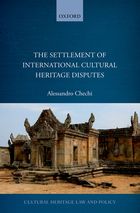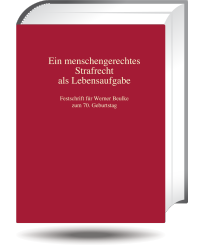Conference Report: UNIDROIT Convention on Stolen or Illegally Exported Cultural Objects – 20 Years Later
On 8 May 2015, UNIDROIT hosted an international conference on the occasion of the 20th „birthday“ of the UNIDROIT Convention on Stolen or Illegally Exported Cultural Objects. The illicit trade with cultural property is a huge market, and legislators on all levels of law-making seek to provide for a regulatory scheme that confines this trade as far as possible. This is a truly difficult task, however, given that the art and cultural property market is fully globalized. A first step on the level of international treaties was taken by the UNESCO Convention on the Means of Prohibiting and Preventing the Illicit Import, Export and Transfer of Ownership of Cultural Property of 1970 (Luxembourg ratified this Treaty on 3 February 2015 as the 128th Contracting State). Soon it became clear that this Treaty should be amended by a more effective instrument providing, inter alia, for self-executing claims for the return of stolen property even against good faith-acquirers who would, if they can prove their good faith, (merely) get a fair compensation. This instrument was to become the UNIDROIT Convention that was adopted on the Diplomatic Conference in Rome in June 1995. Whereas the Convention certainly was a progress conceptually, the sucess amongst the states was moderate: only 38 States have ratified or acceeded the Treaty so far. Therefore, it was one of the key objectives of the Conference to further promote the Convention, but also to evaluate the practical experiences of Contracting States to which belongs, inter alia, the hosting State Italy.
After notes of welcome by Prof. Alberto Mazzoni, President of UNIDROIT, Ms Giovanni Marinelli, Deputy for Cultural Affairs at the Municipality of Rome, H.E. Ambassador Nassif Hitti, Head of Mission of the Arab League to Italy, Ms Maria Vittoria Marini Clarelli, speaking on behalf of H.E. Mr Dario Franceschini, Minister of Italy for Heritage and Cultural Activities, and Mr Alfredo Pérez de Armiñán, Assistant Director-General for Culture, UNESCO, Prof. Kurt Siehr, Professor emeritus of the University of Zurich, Max-Planck-Institute of Comarative and International Private Law in Hamburg opened the floor by presenting on „Difficulties in private international law relating to the restitution of cultural objects“. Siehr recalled the landmark cases of Attorney-General of New Zealand v Ortiz, [1984] AC 1, Winkworth v. Christie Manson and Woods Ltd. and Another, [1980] 1 ER (Ch) 496, and Islamic Republic of Iran v The Barakat Galleries Ltd [2007] EWCA Civ 1374 as well as of course the seminal decision by the German Federal Court of Justice on the illicit export of nigerian masks. Siehr made clear that typical problems arise from the territorial limitations of jurisdictions and the principle of non-enforcement of foreign public law in local courts, a principle that sometimes is confused with the well-accepted doctrine of the application of foreign public law by local courts in connection with a preliminary question such as who is the owner of the object in question (see on this doctrine the Resolution of the Institute of International Law of Wiesbaden 1975 on „The Application of Foreign Public Law“). Thus, the obstacle of non-enforcement of foreign public law does indeed require to be taken care of by international instruments such as the Treaties mentioned above, but any source state may contribute on its own by enacting export laws that result in automatic forfeiture once an attempt of illegal exportation of a cultural object is made. Then such a state may claim return of the object under private law as being the owner. It becomes apparent that the protection of cultural property is a challenge that requires both public and private enforcement mechanisms. This was further substantiated and illustrated by the presentations by Edouard Planche, Programme Specialist, Section for Cultural Heritage Protection Treaties, Division of Heritage, UNESCO, Mr Francesco Rutelli, President of Priorità Cultura, and Ms Maria P. Kouroupas, Cultural Heritage Center, U.S. Department of State.
Prof. Jean-Sylvestre Bergé, Université Jean Moulin (Lyon 3) reflected on the dynamics of sources in international law on the basis of the Treaties mentioned above. Dr. Maamoun Abdulkarmin, Director General, Antiquities and Museusm, Syria (IDGAM) demonstrated via skype the immense looting taking currently place in Syria. Prof. Spyridon Vrellis, Professor emeritus, University of Athens and Director of the Hellenic Institute of International and Foreign Law, Athens, commented on the legal status and factual situation of archaeological objects. Mr Sandro Barbagallo, Curator of the Department of Historical Collections, Vatican Museums, and Mr José Angelo Estrella Faria, Secretary-General of UNIDROIT, analysed the special status of ecclesiastical objects, and Mr Marc-André Haldimann, Associated Researcher at the University of Bern as well as Mr Jorge Sánchez Cordero, Director of the Mexican Center of Uniform Law, Vice President of the International Academy of Comparative Law, discussed the status of private collections. Prof. Manlio Frigo, University of Milan, Member of the ILA Heritage Committee presented the international development of case law and practice on the restitution of cultural objects, and Prof Marie Cornu, Director of Research, CNRS, France, Member of the ILA Heritage Law Committee, discussed the adoption of the recast of the European Directive 2014/60/EU of the European Parliament and of the Council of 15 May 2014 on the return of cultural objects unlawfully removed from the territory of a Member State and amending Regulation (EU) No 1024/2012 in respect to interactions between European Union law and international law.
It may be noteworthy that this recast also triggered activity within the legal orders of the EU Member States. Germany, for example, is currently consolidating and even perhaps codifying its entire cultural property law, a legislative process to which the author of these lines was invited by the German Federal Government to contribute as an expert (see written expert opinion for the hearing by the German Government on 22 April 2015).
Finally a roundtable on the understanding of the core term of „due diligence“ closed the Rome conference at the prestigious Museo Capitolini in its Sala Pietro da Cortona. Many times the spirit of Rome for adopting all kinds of treaties was evoked, and indeed, being at a location of such a significance for culture and history of mankind should help to improve the regulatory framework in particular for the protection of cultural property. It cannot be a surprise that a large number of experts worldwide attended UNIDROIT’s „birthday party“ for its Convention in this field.
Addendum
Further to these notes on the UNIDROIT Conference it may be of interest to be informed about the following two recent, noteworthy publications (amongst many others in the vast and rapidly growing field of cultural property law):
- Alessandro Chechi, The Settlement of International Cultural Heritage Disputes, Oxford University Press2014 (review of this book in the next issue of the GermanYearbook of International Law)

- Klaus Schurig, Nazibeflecktes Kunsteigentum und die USA, in Christian Fahl et al. (eds.), Ein menschengerechtes Strafrecht als Lebensaufgabe, Festschrift für Werner Beulke, pp. 1329 et seq., C.F. Mueller-Verlag 2015, discussing choice-of-law issues in respect to Nazi-looted art
